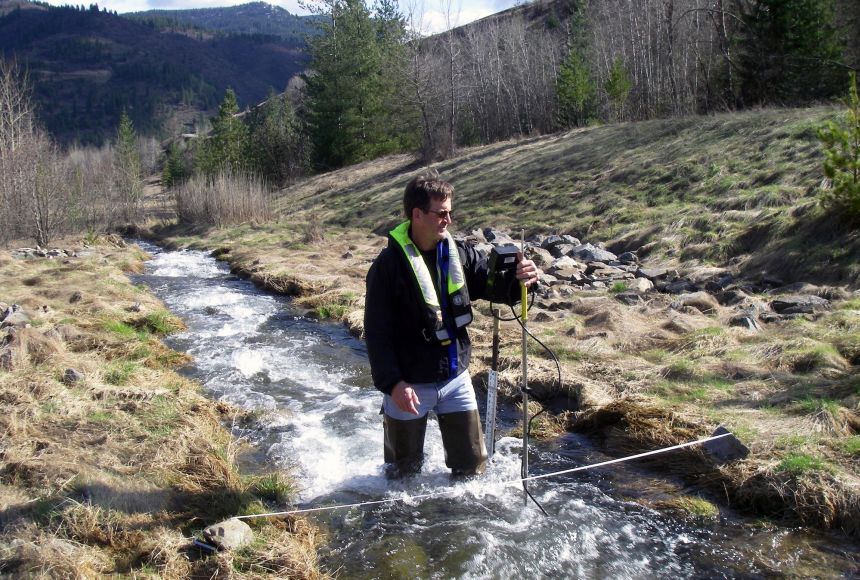ENCYCLOPEDIC ENTRY
ENCYCLOPEDIC ENTRY
Hydrology
Hydrology
Hydrology is the study of the distribution and movement of water both on and below the Earth’s surface, as well as the impact of human activity on water availability and conditions.
Grades
5 - 8
Subjects
Biology, Ecology, Chemistry, Conservation, Earth Science, Oceanography
Image
Hydrologist
A hydrologist measures the stream flow in a tributary to the Coeur d'Alene River.
Photograph by Smith Collection/Gado

Media Credits
The audio, illustrations, photos, and videos are credited beneath the media asset, except for promotional images, which generally link to another page that contains the media credit. The Rights Holder for media is the person or group credited.
Director
Author
Production Managers
Program Specialists
Specialist, Content Production
Producer
other
Last Updated
October 19, 2023
For information on user permissions, please read our Terms of Service. If you have questions about how to cite anything on our website in your project or classroom presentation, please contact your teacher. They will best know the preferred format. When you reach out to them, you will need the page title, URL, and the date you accessed the resource.
Media
If a media asset is downloadable, a download button appears in the corner of the media viewer. If no button appears, you cannot download or save the media.
Text
Text on this page is printable and can be used according to our Terms of Service.
Interactives
Any interactives on this page can only be played while you are visiting our website. You cannot download interactives.